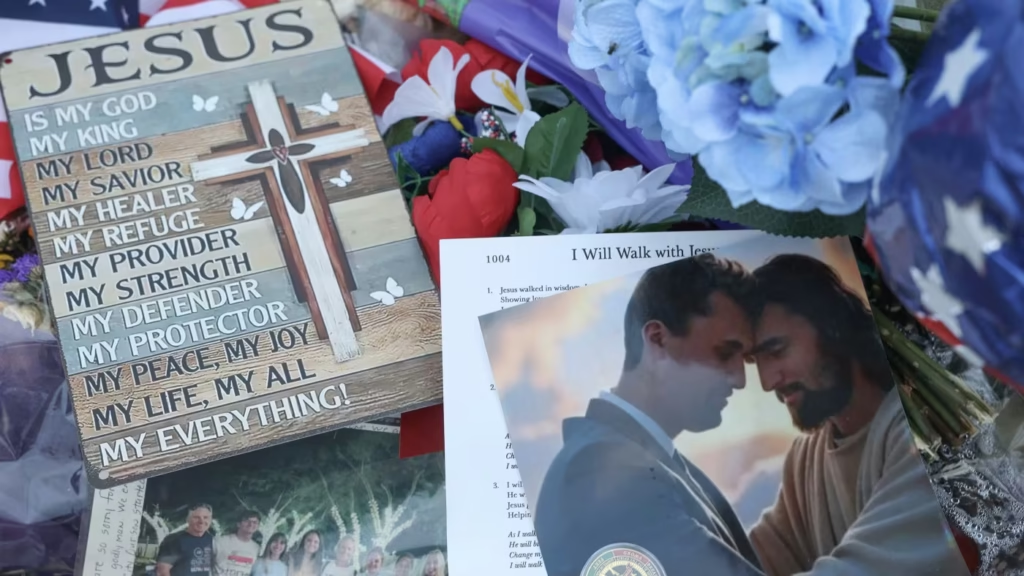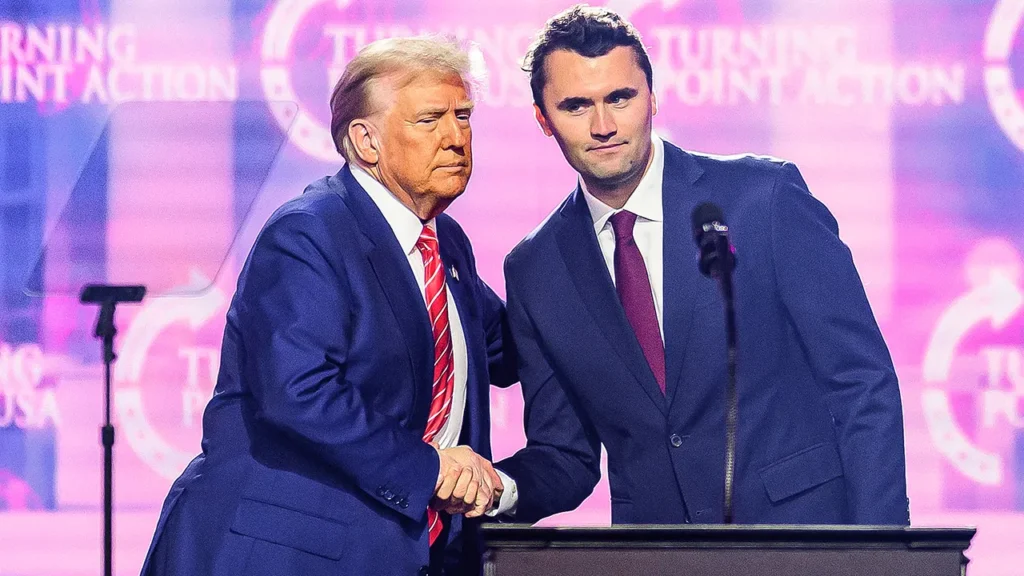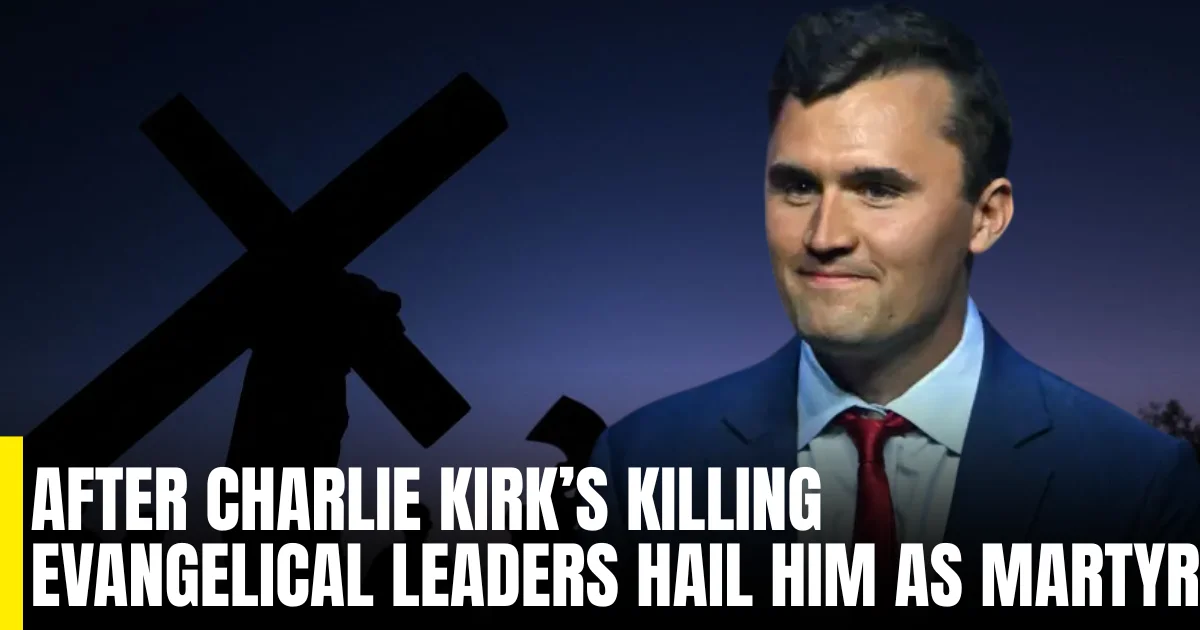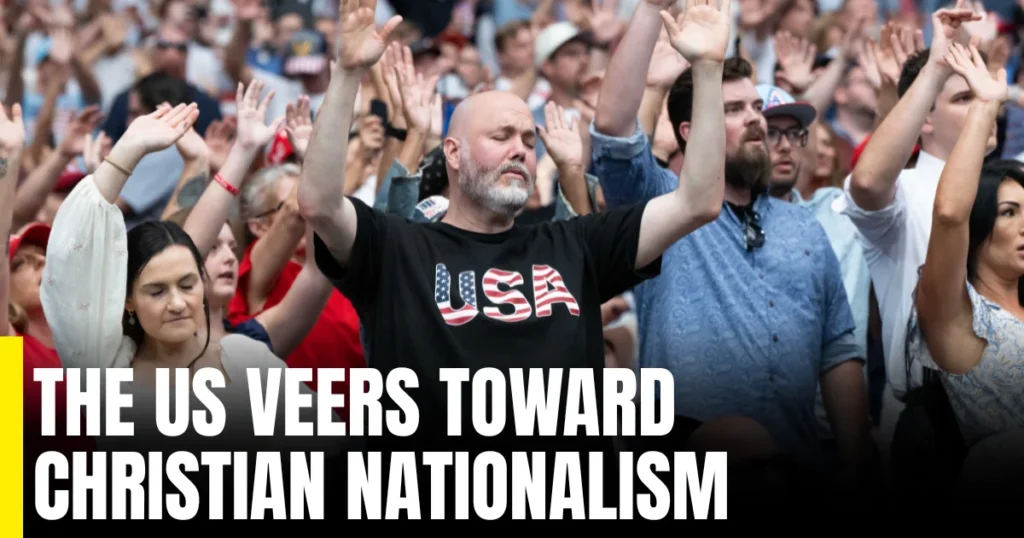After Charlie Kirk’s assassination, evangelical leaders honor him as a Christian martyr while critics push back on his controversial legacy. Read more.
Table of Contents
After Charlie Kirk’s Killing, Conservative Evangelical Leaders Hail Him as a Martyr
The assassination of conservative activist and podcaster Charlie Kirk has ignited a wave of grief and debate across America’s religious and political landscape. While evangelical leaders honored Kirk as a Christian martyr, others strongly rejected attempts to sanctify his legacy, citing his polarizing rhetoric and controversial positions.

Evangelical Leaders Call Kirk a Martyr
On Sunday morning church services nationwide, conservative pastors invoked the word martyr to describe Kirk.
Rob McCoy of Godspeak Calvary Chapel remembered him as “a God-fearing Christian, a patriot, and now a martyr.” Kirk, who was fatally shot during a college event in Utah, was praised by evangelical megachurches that dedicated sermons, videos, and prayers to his memory.
Many leaders framed the assassination as not just political but spiritual warfare. Jackson Lahmeyer, pastor of Sheridan Church, told thousands in attendance:
“The attack on Charlie was an attack on the very institution of the church.”
Trump himself echoed this sentiment, calling Kirk “a martyr for truth and freedom.”
Comparisons to Biblical Martyrs
Several conservative pastors compared Kirk to Stephen, the first Christian martyr in the New Testament.
McCoy declared:
“The same murderous spirit that crucified Christ and martyred Stephen is raging again in our day.”
At Grace Church in St. Louis, Pastor Wes Martin described Kirk as humble and generous, while ministry director Justin Sparks said his assassination felt like “losing a member of my own family.”
For many evangelical leaders, Kirk’s death is being used as a call to spiritual revival.
Turning Point USA Faith Gains Momentum

Kirk’s death has also accelerated interest in Turning Point USA Faith, the religious wing of his political movement. Rob McCoy noted that the number of partner churches doubled in the days following the assassination.
Pastors like Luke Barnett of Dream City Church described Kirk as a man who “gave his life speaking biblical truth.” He insisted that the shooting was not about politics but about “his biblical worldview.”
Push for Christian Political Engagement
Some pastors used Kirk’s death to urge stronger political involvement by churches.
McCoy challenged leaders who avoid politics, saying:
“If you say, ‘I don’t do politics,’ you need to repent.”
He argued that the tragedy should inspire a generation to fight for family values, property rights, and conservative cultural principles.
Widely Divided Reactions

Not all faith communities shared in the glorification of Kirk.
At Alfred Street Baptist Church in Virginia, Rev. Howard-John Wesley condemned attempts to sanitize Kirk’s legacy:
“You do not become a hero in your death when you are a weapon of the enemy in your life.”
Other Black pastors, including Jamal Bryant of New Birth Missionary Baptist Church, also criticized efforts to elevate Kirk as a Christian martyr, citing his history of racist remarks, opposition to civil rights laws, and inflammatory rhetoric.
This sharp division underscores how Kirk’s death has become a new flashpoint in America’s culture wars, deepening the divide between White evangelical conservatism and Black church communities.
A Spiritual Battle or Political Polarization?
For conservative evangelicals, Kirk’s killing represents a spiritual war against Christianity in America. His widow, Erika Kirk, described it as “palpable spiritual warfare.”
But critics argue that framing his assassination in purely religious terms risks fueling further polarization and obscures the controversial aspects of his activism.
FAQs
Q1: Why are evangelical leaders calling Charlie Kirk a martyr?
Evangelical pastors believe Kirk was targeted not just for politics but for his Christian faith, framing his death as part of a larger spiritual battle.
Q2: What role did Charlie Kirk play in conservative Christianity?
Kirk founded Turning Point USA Faith, blending politics with evangelical values and advocating for a Christian-driven America.
Q3: Why are some pastors opposing his martyrdom narrative?
Many Black pastors and critics highlight Kirk’s history of divisive, racist, and anti-LGBTQ+ remarks, rejecting efforts to glorify his legacy.
Q4: What impact could Kirk’s death have on US politics?
His killing has energized evangelical movements, potentially strengthening their political activism during Trump’s second term.
Conclusion
The killing of Charlie Kirk has become more than a tragic loss—it has transformed into a symbolic battle over faith, politics, and national identity. While conservative evangelical leaders hail him as a martyr inspiring revival, critics caution against rewriting his controversial legacy.
One thing is clear: Kirk’s death has intensified America’s cultural and religious divisions, ensuring that his influence—whether celebrated or condemned—will resonate for years to come.

